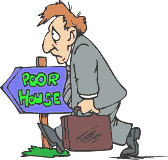
|
|
Justice Credibility & Defense ''Who Owns Your House REALLY? (Please Watch Shocking Video Below To Learn More!)
Does the "Original Lender Have the "Original" Note in Hand?
(The plaintiff- bank, lender or other creditor- starts the foreclosure by having a marshal serve the defendant- owner or borrower- with a Summons and Complaint.) You can check the foreclosure rules in your State. Within 2 days of the Return Date on the Summons... File an Appearance Within 15 days of the Return Date on the Summons... File and send an Answer. Be sure to put a certification of service at the end of your answer, and that you have sent your Answer to everyone who has Appeared in the case. You will need to sign the certification separately from your signature on the Answer. Step Two: The Lender Must Prove Existence of the Note. To recover on a promissory note, the plaintiff (the Lender in the case of foreclosure) must prove:(1) the existence of the note in question;(2) that the party sued signed the note; (3) that the plaintiff is the owner or holder of the note in due course; and (4) that a certain balance is due and owing on the note. Trial court erred when it did not proceed to take testimony before it entered default judgment (see definition below) for the plaintiff; the unsworn statement of plaintiff's (plaintiff is the lender) attorney could not support default judgment rendered.” It is also true, in mortgage foreclosures, prove up of the claim requires presentment of the "original" promissory note and general account and ledger statement. Claim of damages, to be admissible as evidence, must incorporate records such as a general ledger and accounting of an alleged unpaid promissory note, the person responsible for preparing and maintaining the account general ledger must provide a complete accounting which must be sworn to and dated by the person who maintained the ledger. To recover on a promissory note, the plaintiff must prove: (1) the existence of the note in question; (2) that the party sued signed the note; (3) that the plaintiff is the owner or holder of the note in due course; and (4) that a certain balance is due and owing on the note. 1) The existence of the note in question
2) If the "ORIGINAL" note you signed in ink that contains your signature is claimed to be lost, stolen, missing and/or destroyed, then your defense is as follows:
3) The "named" Plaintiff is not the 'holder in due course" of the note and only an agent or nominee for the true beneficial owners and holders in due course;
4) There may be fraud upon the court in that the named Plaintiff may not have ANY interest to the note and that the supposedly lost note is not lost, but may have been intentionally destroyed due to missing assignments on the note which may have made it void and a legal nullity, thus they have exploited key and vital evidence; 5) There is no proof that the named Plaintiff ever held the note or took possession of the note and thus has no claim or right to bringing about the foreclosure; 6) there is no proof, without the note, that a proper chain of assignments took place and that the lien positions were properly perfected; 7) Other unnamed and disclosed real parties in interest may have a claim to the note and be the rightful beneficial owners to the note and must be identified and brought before the court; 9) That the party sued signed the note. 10) If the "ORIGINAL" note you signed in ink that contains your signature is claimed to be lost, stolen, missing and/or destroyed, then you need to notify me and also put on affirmative defenses that: 11) The note in question is not the note you signed and executed in ink and only the one you signed in ink that presumably contains your fingerprints can be relied upon by your handwriting analysis expert; 12) In an electronic age, it is a simple matter to place someone's signature or image upon a document and that it is very difficult to imagine such a valuable negotiable instrument being lost or missing without a nefarious motive. 13) That the plaintiff is the owner or holder of the note in due course; a) The mortgage industry, investors, and GSE's such as Fannie Mae, Freddie Mac, and FHLBs etc. have a requirement that the last endorsement to them be undated and "blank" leaving the payee line blank and making the negotiable instrument a sort of "bearer bond" and instrument. as such, any party finding or stealing the note can place their name on the payee line, claim ownership of the note, and sell the note to others who may make a demand upon you in the future. as such, you require money to be deposited in an escrow account or with the court in an amount equal to the amount claimed owed on the note, until such missing note is found or upon your death. notes have a life of their own... b) if the note was destroyed or lost intentionally (the industry maintains this practice) then they may be trying to hide the beneficial owners and shield them from any assignee liability arising from the actions of the servicer who they hire, supervise and most importantly authorize to foreclose upon you. without the note, since subsequent endorsements are not recorded to avoid payment of taxes and t hide true and real beneficial interests, there is no possible way to determine who ever held a rightful interest in the note and who you may have claims or counter claims against and who should be presently before the court as a real party in interest. c) Furthermore, if there are missing assignments of the original note and the assignment went from Lender A to Lender B to Lender D without an intervening assignment from Lender B to Lender C and From Lender C to Lender D, then the note may be void and a legal nullity in your state. d) It is industry practice to not name the GSE, investor, or real party in interest in foreclosure and to use as a front for the Plaintiff: i) The very original lender who may or may not even be in business any more or sold their interest in the note long ago, only to have a claim made upon them for repurchase; ii) A Servicer of even "special servicer" who is acting as an agent for the investors, GSE's or real party in interest, but has no beneficial ownership in the note since they are only being paid to collect and foreclosure by the real parties in interest iii) A "nominee" such as MERS who has no legal authority to foreclose upon you and do business in your state and who according to their own written documents and verbal assurances never hold the note or own "any" beneficial interest in the note! e) Notes are pledged, sold, bifurcated, and traded in various derivative transactions like bubble gum baseball cards and their transfers, sales,pledges etc. Are not publicly recorded. As such, only possession of the actual original note can prove the actual owner and holder in due course of the note and who you can make an offer of payment to for purchase of the note by yourself, another family member or partner. You have a right to know the rightful owner of the note so an offer for payment of the note at a discount and at fair market value can be made. If the note has been pledged and encumbered, then that party must be made aware of the foreclosure and your right to negotiate with them a payment and release of the note by you, other lien holders or private parties; f) Notes are traded often and you need to inspect the physical note to the deal prior parties were that held and endorsed your note since you may have counter and cross claims against them and need to bring them before the court for the action, since they may have improperly inflated your principal balance, amount owed or escrow account by not applying your payments correctly; adding fees not legally owed by you to the principal balance; miscalculating the interest and not properly amortizing your loan; fraudulent selling your loan or misreporting you on your credit report.
|

